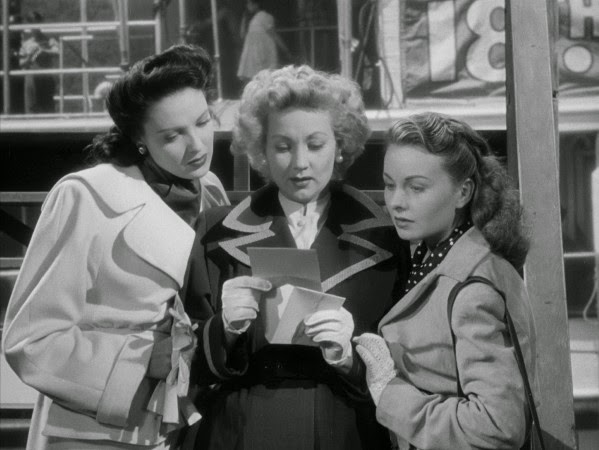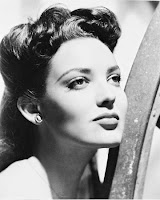Green Fire (Andrew Marton, 1954)
"...never agree to a role before reading the script."
Grace Kelly
Stewart Granger

The "fastest friar in the South" tends to Mitchell's wounds as best he can for the journey off the mountain and takes him to the nearest outpost, the Knowland coffee plantation, home to Catherine (Grace Kelly) and her brother Donald (John Ericson). Tended to by the generosity of the Knowlands and the servitude of their workers, Mitchell makes a quick recovery, regaining consciousness after only a day of bed's rest. He rewards this hospitality by saying he's got to catch the next boat up the river and wanting to find his pants because he has something very valuable in them...like...his car-keys (Yeah, that's it. The car-keys!). Ignoring everyone's protests, Mitchell hurries up and suits up.
He's interrupted by his savior, Father Ripero (Robert Tafur), who lets him know that he found a "valuable ore deposit" while going through his trousers. Mitchell assures him that it's nothing by lying through his teeth and the priest then informs him that he, too, once found the legendary emerald mine, Carrero, once worked by the conquistadors, but covered it up and kept it secret because 1) he's a priest and 2) he knew such riches would only lead to greed, lust, gluttony and the other deadly sins before everyone got tired out and turned to sloth. He then tells Mitchell to say three "hail Mary's" for lying to him. Mitchell just wants to get on the boat, but he tells Ripero he'll back for the emeralds and that the gluttony and lust stuff sound pretty good, too.
The Knowland coffee plantation, located just on the border of a Colombia matte painting.
Mitchell gets back to his business' base, just in time to find out that his partner, Vic Leonard (Paul Douglas) has quit in frustration after twelve years. Mitchell tries, to no avail, to get him to stay, but when the boat is delayed leaving Vic finds Mitchell at a bar, proceeds to get drunk, miss his boat, and Mitchell gambles the funds from the refunded ticket to set up an expedition to the mine and start a mining operation. Vic is mad, but Mitchell convinces him that their efforts will soon pay off.
Vic and Mitchell's boat-trip upriver hits port not too far from the Knowlands'. After a bit of local difficulty, they assemble a work-crew and travel to the mountains to begin work. But, they're under the watchful eye of the bandit leader, El Moro (Murvyn Vye) and he's just as interested in a fortune in emeralds as Mitchell and Vic are. Things become contentious, especially when El Moro tries to sabotage things to discourage the miners from staying, leaving him to collect the spoils. Concurrently, Mitchell and Catherine continue a building interest that heats up when she invites Mitchell and Vic to dinner at the plantation.
You look at Andrew Marton's IMDB page and it's incredible. He did second unit work on some of the biggest movies—where the second unit work was frequently the best part of the picture—and his long string of directing credits—including King Solomon's Mines—shows an inclination towards the exotic with lots of location work spent in far-flung lands and underwater. And he delivers on some good action with explosions and gun-fights amid precipitous locations.
But, the script—by Ivan Goff and Ben Roberts (they wrote the classic, over-the-top White Heat!) is one of those "write me a Clark Gable movie" concoctions where the star is a bad-boy who has to go from a bastard to the side of virtue and have you on his side from the first reel, despite whatever boorishness he displays. That's not Stewart Granger. Granger could play "rogue," but there is always a veneer of civility to it, and Grace Kelly plays one of those poor creations who reluctantly falls for the bad boy against all signs pointing to the obvious that it's a bad match. Kelly can play "sly" and she can play "doormats" (as long as they wise up by the end), but she rarely was good at conveying bad taste.
And the script lets both actors down. It delivers exotic and it delivers last-minute tension and action, but motivations are mighty light and the resulting actions emanating from them are bewildering. It's drama for the sake of drama that merely gets the job done so they can turn up the house-lights. But, a movie shouldn't make you grateful for the occasion.
And the script lets both actors down. It delivers exotic and it delivers last-minute tension and action, but motivations are mighty light and the resulting actions emanating from them are bewildering. It's drama for the sake of drama that merely gets the job done so they can turn up the house-lights. But, a movie shouldn't make you grateful for the occasion.




































